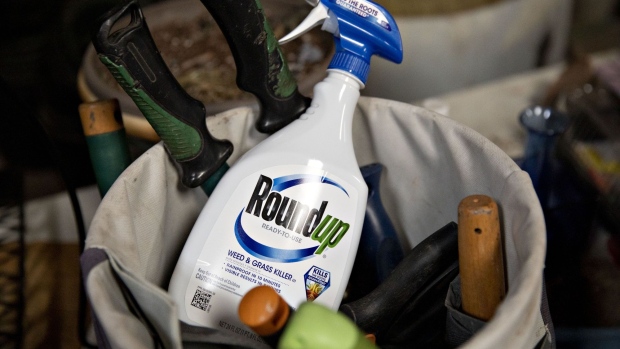Aug 5, 2021
Bayer Starts Latest Roundup Trial With Leg Up After Three Losses
, Bloomberg News

(Bloomberg) -- Bayer AG went to trial Thursday over a California woman’s claims the company’s best-selling Roundup weedkiller caused her cancer in what could be the German conglomerate’s best shot at winning a case after three straight losses averaging almost $50 million in damages for each consumer.Lawyers for Donnetta Stephens began laying out their claims to a jury that the 70-year-old woman developed non-Hodgkin’s Lymphoma after using Roundup for more than 30 years in her yard. It’s the first case against Bayer’s Monsanto unit to come to trial in more than two years after Covid-19 upended court schedules. Bayer’s attorneys were slated to make their opening arguments in state court in San Bernardino after Stephens’ team finished.Before the trial started, Bayer’s lawyers persuaded California Superior Court Judge Gilbert Ochoa to throw out Stephens’ claims that the company hid Roundup’s health risks, which may make it easier for the manufacturer to win the case, said Richard Ausness, a University of Kentucky law professor who teaches about mass injury suits.“Failure to warn in these product-liability cases is usually the strongest claim, so if that’s out, Bayer definitely has a better chance of winning the case,” Ausness said in an interview. “Sounds like they could really use a win.”
Bayer spokeswoman Carolyn Nagle said the pretrial ruling “cites the complete, up-to-date regulatory record on the safety of glyphosate-based herbicides.”
“While we have great sympathy for Ms. Stephens, the extensive body of scientific research on glyphosate-based herbicides over four decades and determinations of expert regulators around the world support the conclusion that Roundup is not responsible for her illness,” she said in an email.
The trial comes as the Leverkusen, Germany-based company last week set aside an additional $4.5 billion to deal with Roundup suits, bringing its reserves for the cases to more than $16 billion. Bayer officials also said they will pull the current version of Roundup off the U.S. market in 2023.
Read More: Bayer’s Roundup Costs Could Top $16 Billion as Provisions MountThe drugs and chemicals giant inherited the legal woes with its $63 billion takeover of St. Louis-based Monsanto in 2018, a deal spearheaded by Chief Executive Officer Werner Baumann early in his tenure. Monsanto started manufacturing Roundup in the 1970s.
The purchase closed just weeks before the first of three juries in California found that Roundup had caused cancer.
In one case, a California jury awarded a wife and husband more than $2 billion in damages. That award later was cut to about $87 billion. Two of the verdicts have been upheld on appeal while a third appeal is pending.
Those losses intensified the surge of Roundup suits, wiping tens of billions of dollars from the company’s market valuation.
Bayer plans this month to ask the U.S. Supreme Court to take up a case it lost in 2019 and rule that federal regulators’ findings that glyphosate isn’t a carcinogen absolves the company of wrongdoing. A ruling from the high court siding with the company on so-called federal preemption may doom thousands of other cases.In Stephens’ case, Ochoa accepted Bayer’s preemption argument to conclude that she couldn’t accuse the company of failing to warn her about the herbicide’s health risks. She can still seek to convince the seven-man, five-woman jury in San Bernardino -- about 60 miles east of Los Angeles -- that Bayer’s design of Roundup was defective and caused her cancer.Stephens was diagnosed with cancer in 2017 and won a fast-tracked trial after her health began to fail, according to court filings. She and thousands of other consumers sued Monsanto after the World Health Organization concluded glyphosate was a probable human carcinogen with links to non-Hodgkin’s Lymphoma.
©2021 Bloomberg L.P.